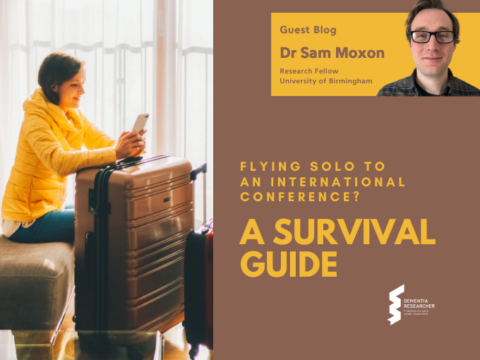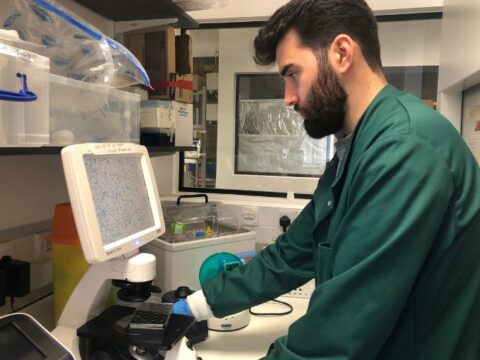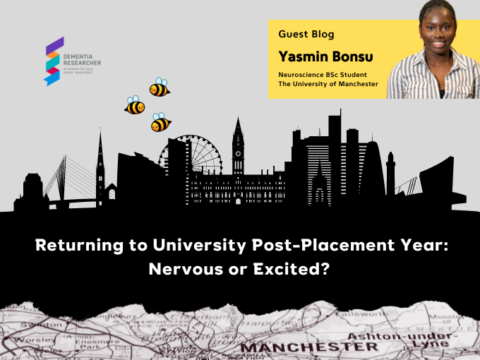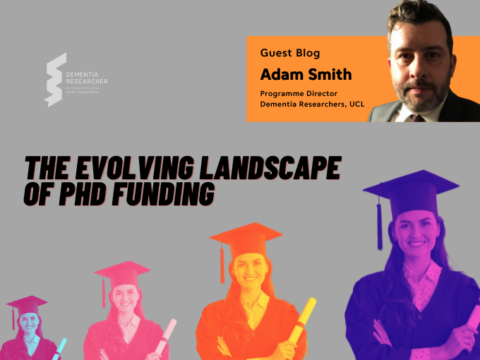As I write, I am exactly six months into maternity leave, and have frankly no idea where that time has gone! This also means that in only three months I will be returning to work – or rather, to “work” (in inverted commas) as a PhD student. I say this, somewhat facetiously, as a reaction to my recent attempts to set myself up for the future – the focus of this month’s blog.
I had always planned to take nine months for maternity leave. This seemed like a realistic amount of time to take off; as close as I could get to maximum family gain for minimum financial pain. As the months have crept on, I’ve had to admit that maternity leave isn’t forever, and actually I need to start making some big decisions about what life will look like after leave. The first of those big decisions would be about our living situation.
I have been living in my flat for almost 4 years now – my husband, my cat and I moved in here when we got married. It ticked almost none of the boxes we were looking for, but I fell in love with it immediately and begged him to agree to move there. I loved the wood floors, the built-in bookshelves, a truly unique space-saving situation involving our dining table descending from the ceiling via an electric winch (true story)! I would happily rent this place forever. That being said, it’s a top floor, one-bedroom flat, with not a single even surface, and sash windows that refuse to fully close. As such, after our 12-week scan last year, I started perusing the market with a view to move. I wasn’t in a rush to move; the deadline was my return to work.
I cannot express how dismal the rental market is in London. Truly depressing. I saw a two-bed advertised recently not too far from us for around £1700 a month, which had no living room and no windows. No windows! There were two skylights that served the whole flat, and then windows between rooms (for example, between the bedroom and kitchen) to optimistically facilitate some flow of natural light. One of the bedrooms had a metal wall which looked like a kitchen splashback. Absolutely bizarre. All that for £1700 a month!
Suffice it to say, my search for a new flat has been in turn depressing, stressful and infuriating. On the rare occasion something vaguely affordable comes up (and by affordable, I mean under 45% of our combined income) it’s tended to actually be smaller than our current flat, despite squeezing in an extra bedroom. More often than not though, it has turned out we’re not eligible for the flat because they either stipulate that they are not open to pets, or – outrageously – that they will not consider tenants with children. It hadn’t even occurred to me that landlords can perfectly legally refuse families. Finding a landlord who would accept my cat and my baby on a reasonable budget seemed nigh on impossible.
Alas, a couple of months ago I found a listing that might fit the bill. The area wasn’t great, and it was technically only the same square footage as our current place, but it seemed good enough, so I called up to arrange a viewing. Happily, they could fit us in the next day! There was just one small problem: my “work” – that of a PhD student – didn’t count as work, and my income didn’t count as income. As such, the letting agent informed me that we would only be considered for the property if we were prepared to offer a minimum of six months’ rent up front. I was livid.
I’ve spoken in a previous blog about my disappointment at realising the UK government’s new bill for affordable childcare doesn’t apply to postgraduate students, but this seemed like an additional slap in the face – one that I hadn’t been prepared for. In the end I cancelled the viewing, consoled myself with the fact that there are many other families making do in a one-bed apartment, and spent some time wondering whether a bathroom can ethically or safely multipurpose as a bedroom for an infant.
You’ll be pleased to hear we haven’t had to resort to that: fortunately, the following month, we managed to find something suitable, through a letting agency who were more sympathetic to my status. Currently, I’m surrounded by boxes, in anticipation of our move in two weeks’ time.
Now that we know where we’ll be living, the next issue can be tackled: childcare. While our living situation seemed uncertain, I had avoided thinking about my return to work and what that may look like.
Friends have asked whether I’m planning on going back to work full- or part-time, and I have to be honest that a part-time stipend would not be financially viable for us.
At the same time, though, neither would full-time childcare. We don’t have the benefit of family nearby to help out, so have had to carefully consider what we can afford, what the implications will be for my studies, and what is feasible for our family. At this stage, I’m incredibly grateful that being a PhD student affords me some degree of flexibility, meaning that condensed or irregular hours are not out of the question. My working hypothesis at present is that I can get a lot done on three days of childcare, topping up during nap times, evenings, weekends, and school holidays. This will be a conversation we revisit regularly, however, as my flexibility can’t come at the cost of my timelines – particularly when running the risk of exhausting my funding.
All in all, I’m feeling optimistic about my return to work. Yes, I’ll have more to juggle, and yes, it will mean a couple of years of carefully managing our budget, but it feels manageable. I’ve always been more productive with a little pressure, and I’m hopeful that our improved living situation will also gift me with a little more physical and mental space with which to work. Now I just need to tackle the biggest task: identifying someone with whom to entrust my child. Wish me luck!

Emily Spencer
Author
Emily Spencer is a PhD Student at University College London looking at improving how GPs communicate with people with dementia and their family carers about their future care. Emily previous had a 5 year career break to pursue a career as a musician, and has previously undertaken research on improving the care people with dementia receive from their GP practice, as well as end-of-life and palliative care provision in the community. Emily is also a new mum and will be writing about her experiences navigating motherhood and a research career.

 Print This Post
Print This Post





